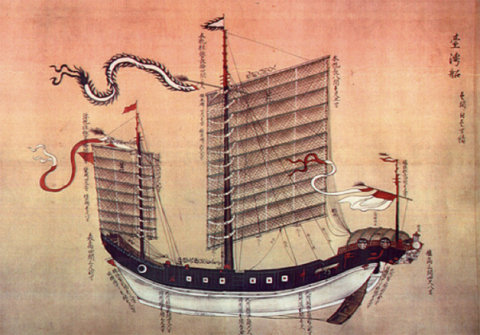 China Research Seminar Series talk given by Prof. Leigh Jenco, London School of Economics.
China Research Seminar Series talk given by Prof. Leigh Jenco, London School of Economics.
Professor Jenco is a political theorist who uses China to think about fundamental political questions.
In this talk, I examine the earliest firsthand account in any language of the indigenous societies living on Taiwan (Formosa), the Record of Formosa (Dongfan ji). The Record was written in 1603 by Chen Di (1541-1617), a military advisor and itinerant literatus who accompanied General Shen Yourong on his expedition to rid the island of pirates. Recent commentators have viewed Chen's text as a key elaborator of Chinese imperial discourse and its various tropes of hierarchical difference.
In contrast, I argue that Chen offers one of the few examples of a Chinese anti-imperial argument, built from his scholarly commitments to a historicized view of the past and elaborated in contrast to other, more prevalent neo-Confucian justifications for the pacification of Taiwan. Building on a broader understanding of Chen’s biography and his extant works, I argue that Chen reads the perceived cultural differences between Taiwan’s indigenous peoples and an imperial center as evidence of the fragility and reversibility, rather than inevitable superiority, of a historical story that produces the outcome of “civilization.” Chen Di indicates that the island’s inhabitants might be understood as forging their own contingent history that exists parallel to, rather than behind, that of a civilizational center. By placing the indigenes along a different timeline altogether, Chen’s historical narrative resists the colonial temptation to align them with Han Chinese forms of development.
Leigh K. Jenco is Professor of Political Theory at the London School of Economics and associate editor of the American Political Science Review. Her research focuses on how late imperial and modern Chinese thought can formulate and address questions of broad political concern. She has published widely across the disciplines of political science, philosophy, and intellectual history and is the author of Changing Referents: Learning Across Time and Space in China and the West (Oxford University Press, 2015) and Making the Political: Founding and Action in the Political Theory of Zhang Shizhao (Cambridge University Press, 2010). With colleagues at the universities of Zurich, Heidelberg, and Madrid, she manages a Humanities in the European Research Area grant for the collaborative research project “East Asian Uses of the European Past: Tracing Braided Chronotypes” (2016-2019).
